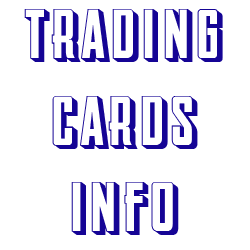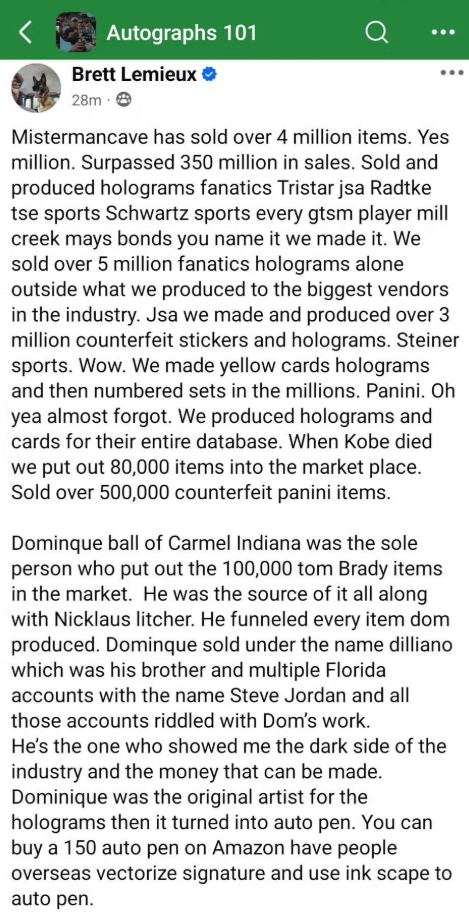The serene town of Westfield, Indiana, was jolted with suspense more suited to the plot of a thriller when law enforcement officers executed a search operation, unearthing a mind-boggling sports memorabilia scandal. The tale of deceit, driven by Brett Lemieux, a charismatic and well-known autograph dealer, has amplified anxieties within the close-knit world of sports collectors.
Brett Lemieux, who had long been recognized for his reputed dealings in the autograph industry, now finds his name synonymous with one of the biggest faux memorabilia scams in recent history. While the Hamilton County Coroner’s Office remains tight-lipped on the definitive cause, preliminary reports from the Westfield police suggest he perished by his own hand amid the chaos of a police search linked to this deceitful scheme.
Before his dramatic demise, Lemieux apparently sought a moment of redemption, confessing through a post attributed to him in the “Autographs 101” Facebook group. With a revelation that would send shockwaves akin to aftershocks from a seismic event, Lemieux outlined a venture far larger and more cunning than fellow collectors or dealers were prepared to believe. His confession recounted a staggering breach of trust with the circulation of over four million counterfeit sports items, allegedly generating an eye-watering $350 million in sales.
Operating under the guileful guise of “Mister Mancave,” Lemieux cast a wide net across the memorabilia world, claiming to stock the “largest framed jersey inventory on the web.” A phantom business in many respects, it flaunted a Columbus, Ohio address, yet no brick-and-mortar store ever appeared on the map. Spun into the narrative of entrepreneurial deception, Mister Mancave was sporadically incorporated in Indiana within recent years, signaling clandestine maneuvers that now cast long shadows on the memorabilia field.
Authenticity was, ironically, the hallmark of Lemieux’s conundrum for collectors. In his purported confession, he brazenly detailed an unauthorized empire producing forged hologram stickers, professing to mimic the trusted symbols of authenticity from companies like Panini, Fanatics, and others. The tragic passing of basketball legend Kobe Bryant in early 2020 only added velocity to his machinations, with Lemieux claiming to introduce a flood of 80,000 counterfeit Bryant items disguised as authentic into a grieving and unsuspecting market.
Not limited to the basketball sphere, Lemieux’s path of forgery found intersections with different sports branches. His website showcased items like Aaron Judge-signed baseballs, inconspicuous with counterfeit credentials yet intriguingly priced to tempt collectors into a potential too-good-to-be-true deal. If fans paused to question the incongruity in pricing, the allure of a “legitimate” hologram often quelled suspicions before they grew roots.
As the ripples of this revelation spread, industry giants are left scrambling for integrity restoration. Among them, Fanatics, an authentication leader, reiterates their commitment to outmaneuvering counterfeiters, proudly touting a hologram overhaul and collaborations with ex-FBI operatives to dodge deceit and protect the sanctity of the autograph-collecting hobby.
Even as some critics raise eyebrows over the enormity of the numbers Lemieux broadcast—some peers claim the $350 million sums as more fictional than feasible—the scandal has reopened simmering suspicions. Esteemed figures in signature authentication like Steve Grad speak to the rising sophistication of forgeries and the enduring ramifications such deceits cast upon an unsuspecting market, shaking trust and prompting closer looks at bootless signatures.
Within insider circles, this event shone lights on already ripening doubts. Lemieux had allegedly hovered over the horizon with autographs purportedly from athletes who had long ceased public signings. Those implicated in his parting “manifesto,” dealers such as Dominique Ball or the Wisconsin-based Nickolas Litscher, are shaking off accusations fervently. Litscher has even gone a stride further, mobilizing legal defenses against the reputational blowback from Lemieux’s posturing.
This crisis in confidence is amplified by revelations of Lemieux’s spider-web of subsidiaries, names such as Ultimate Sports and Signature Dog now tainted by their scripting roles under the fantasy-driven deception.
Beyond the smoke and mirrors, as authorities toil with sorting this intrigue spooling, the loyalist collectors find themselves questioning everything while reassessing keepsakes previously cherished. The whole paraphernalia pinwheel demands reevaluation, serving as both an alarm and appeal within sports collectibles, for an ever-vigilant stance and sparing no effort to anticipate and counteract new fibs that might follow in the scandal’s wake.

